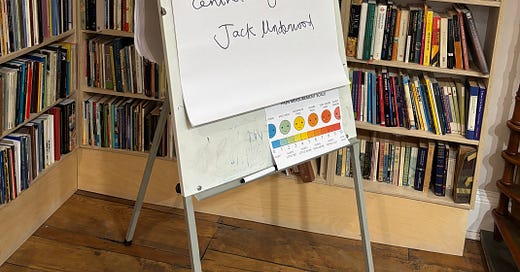This past week I’ve been teaching on an Arvon course with the wonderful writer Mona Arshi. The course was about the fuzzy boundary between poetry and prose. Almost hourly we were asked to define what a poem is, what defines prose, what makes a prose poem etc. I offered examples of each but for every one that adhered to a rule (for instance some people say that poems have lineation, and prose has paragraphs) I shared one where the rules didn’t apply. I shared essays that looked like poems and poems that looked like essays. The course wasn’t about giving answers, it was about trying to let go of definitions and become more comfortable with not being sure.
Jack Underwood wrote a beautiful essay on this for Poetry Review:
‘With poems you have to risk all kinds of small, hopeful, doomed leaps; uncertainty is central to your business. You not only have to acknowledge the innate inaccuracy of language as a system that cannot catch or hold onto anything securely, but also that it’s precisely this characteristic of inaccuracy that a poetic, empathetic transaction rests on.’
Asking people to accept, and to invite even, a sense of uncertainty is tough. We want to be sure! We want rules! We want to know we’ve got things right! But there’s so much to be gained when we surrender to not knowing. Not knowing means we’re open to being surprised.
A quote I often use in teaching is from Vivian Gornick, who talks about writing essays as an ‘act of arriving at what we know’. I share it because that is why I write – to get at what I know. To convert the messy diversions of what I feel into the more disquieting, liberating release of what I think. Writing has the power to turn my raw, unmediated experience into insight. And that necessarily requires me to accept what I don’t yet know, what I should be more curious about, what ‘small, hopeful, doomed leaps’ I need to take next.




This is lovely Amy! "Writing has the power to turn my raw, unmediated experience into insight." Didn't think of it this way before. Thanks for sharing!